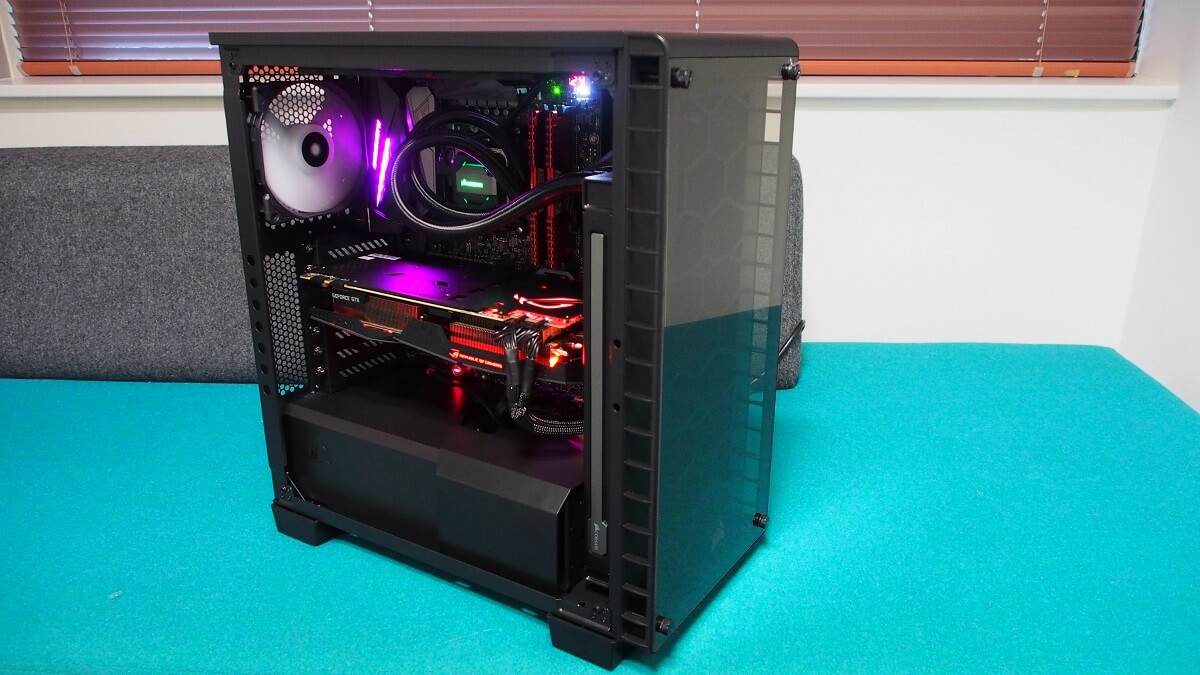
Choosing the Perfect PC: Find Your Ideal System
In today’s digital age, having the right computer is crucial, whether for work, gaming, or everyday use. With countless options available, choosing the perfect PC can be overwhelming. From the latest models to custom builds, computer stores offer a vast selection to cater to every need and budget. This guide will help you navigate the process and find the ideal system for you.
Read Also: GB WhatsApp download
Determine Your Needs
The first step in choosing the perfect PC is understanding your specific requirements. Are you a gamer, a professional needing high performance for tasks like video editing, or a casual user? Identifying your primary use will help narrow down your options.
- Gaming: If gaming is your priority, you’ll need a system with a powerful graphics card, a fast processor, and ample RAM. Look for PCs with dedicated GPUs from NVIDIA or AMD, and at least 16GB of RAM.
- Professional Use: For tasks like video editing, 3D rendering, or software development, invest in a high-end processor (Intel i7/i9 or AMD Ryzen 7/9) and a minimum of 32GB of RAM. Storage is also crucial, so consider a combination of SSDs for speed and HDDs for capacity.
- Everyday Use: If your needs are basic, such as browsing the internet, streaming videos, or working on documents, a mid-range system with an Intel i5 or AMD Ryzen 5 processor and 8GB of RAM will suffice.
Budget Considerations
Your budget plays a significant role in the type of PC you can afford. Here’s a breakdown of what you can expect at different price points:
- Entry-Level ($300-$600): Suitable for basic tasks, these systems typically feature lower-end processors, integrated graphics, and limited RAM. Ideal for students or casual users.
- Mid-Range ($600-$1200): Offers better performance with faster processors, more RAM, and sometimes a dedicated graphics card. Perfect for moderate gaming, light photo/video editing, and multitasking.
- High-End ($1200-$2500+): These PCs are built for heavy workloads, advanced gaming, and professional use. Expect top-tier processors, high amounts of RAM, and powerful GPUs.
Desktop vs. Laptop
Deciding between a desktop and a laptop depends on your lifestyle and preferences.
- Desktop: Desktops generally offer better performance for the price, are easier to upgrade, and can handle more powerful components. They are ideal for users who need a stationary setup and high performance.
- Laptop: Laptops provide portability, which is essential for people who travel or need to work from various locations. Modern laptops can be very powerful, though they often come at a higher price for similar performance to desktops.
Choosing the Right Components
Processor (CPU)
The CPU is the brain of your PC. For most users, an Intel i5 or AMD Ryzen 5 will provide ample performance. Gamers and professionals should consider Intel i7/i9 or AMD Ryzen 7/9 for enhanced capabilities.
Graphics Card (GPU)
Gamers and creative professionals need a robust GPU. NVIDIA’s RTX series and AMD’s RX series are excellent choices. Integrated graphics are sufficient for everyday tasks but fall short for gaming and intensive workloads.
Memory (RAM)
RAM affects your PC’s multitasking ability. 8GB is the minimum for basic use, 16GB is recommended for gaming and moderate workloads, and 32GB or more is ideal for professional use and advanced computer systems.
Storage
A combination of SSD and HDD offers the best of both worlds. SSDs provide speed for your operating system and frequently used applications, while HDDs offer larger capacities for storing files.
Advanced Features
For those looking for more advanced computer systems, consider features like water cooling for overclocking, multiple GPU setups, or high-resolution displays for design work. These features can significantly boost performance but come at a higher cost.
Conclusion
Choosing the perfect PC involves balancing your needs, budget, and preferences. Whether you’re a gamer, a professional, or a casual user, there’s a system out there for you. Take your time to research and compare options in various computer stores. By considering factors like your primary use, budget, and the necessary components, you’ll be well on your way to finding your ideal PC.
🌐 Sources
- support.microsoft.com – Use the Navigation pane in Word
- superuser.com – MS Word, how to manage the Headings in a document
- techcommunity.microsoft.com – Headings style
- libguides.jsu.edu – Subject Headings – Computer Science/Computer Information
- linkedin.com – How do you choose the right heading level for your documentation
- tandfonline.com – The Validity of Sentiment Analysis



